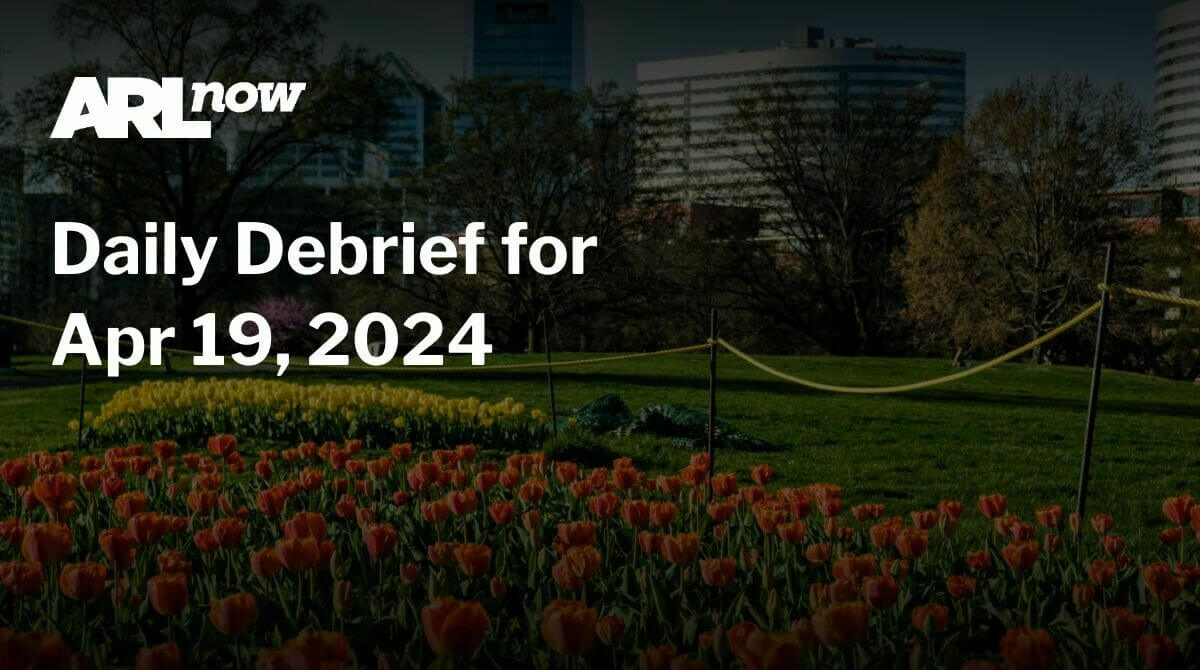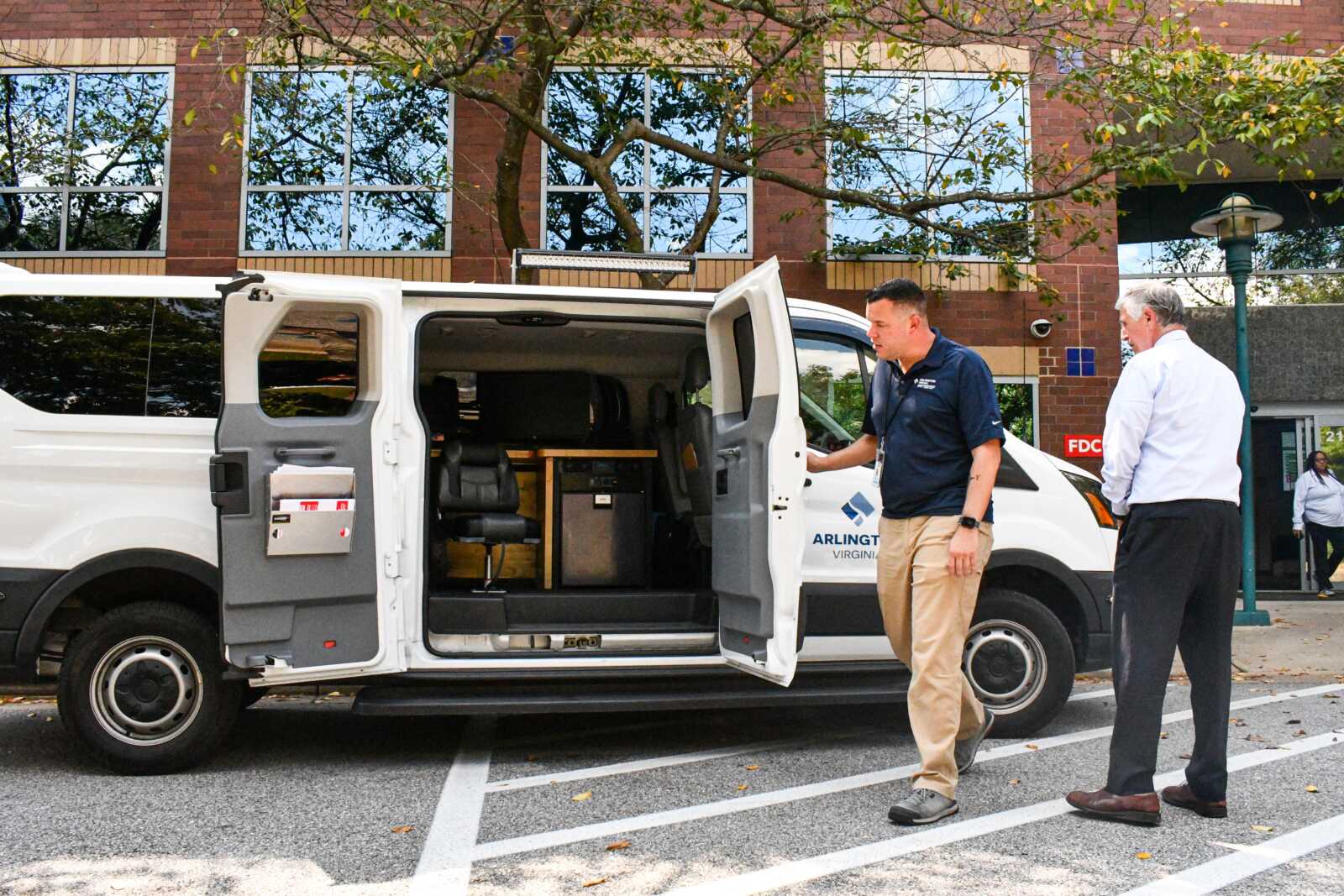(Updated Thursday at 3 p.m.) Metro leaders are hoping to increase service during the morning and evening rush hours next year, but they could well face an uphill battle in convincing Arlington officials to help fund the change.
WMATA General Manager Paul Wiedefeld proposed a budget for the new fiscal year that doesn’t include any fare increases, but does call for rush hour service to extend to 10 a.m. and 8:30 p.m. to better serve commuters. The budget, set to be reviewed for the first time by Metro’s Board of Directors tomorrow (Thursday), also beefs up service on the Yellow and Red lines and expands all trains to a maximum eight cars as part of a broader bid to win back riders for the struggling rail service.
The catch, of course, is that such service increases won’t come without a steep price tag. Even though Metro expects to bring in some new revenue with the added service, Wiedefeld expects that he’ll need an extra $20 million from Maryland, D.C. and Virginia to afford those changes.
Virginia relies on individual localities like Arlington to chip in for WMATA each year, and that means Wiedefeld’s proposed changes would increase the county’s annual funding obligation to Metro from $75 million each year to $83 million. That works out to a 9.8 percent increase, a number that is giving Arlington officials some real pause.
“It’s not that it’s a bad idea,” County Board Chair Katie Cristol told ARLnow. “It’s a question of, where does the money come from?”
Christian Dorsey, the County Board’s vice chair and Arlington’s representative on the Metro Board of Directors, agrees that he’d love to see some service increases, particularly as Metro wrestles with a thorny internal debate about how to boost ridership. Yet he’s concerned that Arlington won’t be able to afford all of Wiedefeld’s changes, at least all at once.
The county is already dealing with an intense funding squeeze, driven in part by falling revenues but also by the deal struck by state lawmakers to provide dedicated funding to Metro, which already put a larger burden on Arlington’s budget. This latest funding increase could make the county’s already grim financial picture even gloomier, Dorsey said.
“That’s a challenge, and there’s not the ability for any jurisdiction to just say, ‘Let’s take this budget and adopt it as is,'” Dorsey said. “I’ll be honest with you, this surprised me… I can’t quite come up with a rational reason why these service enhancement proposals were developed in this way.”
As Dorsey puts it, “something’s got to give, and something’s got to shift” in Wiedefeld’s proposal. He expects that some of the proposed changes to boost ridership “might need to wait until later,” due not only to Arlington’s specific budget challenges but one specific issue affecting all of Virginia’s localities.
A provision included in the dedicated funding deal prohibits the state from increasing its funding level to Metro by more than 3 percent each year, as part of a bid to control costs. Yet Wiedefeld’s proposal calls for an increase closer to 16 percent for the entire state, though that is largely driven by new construction costs for the second phase of the Silver Line, borne primarily by Loudoun County.
To Cristol, who doubles as the secretary-treasurer of the Northern Virginia Transportation Commission and argued forcefully for the dedicated funding legislation last year, fighting to exceed that 3 percent cap seems like a perilous decision for Metro.
She notes that the General Assembly included that cap in the funding bill as a way to control costs, and it became an essential way to justify the legislation to lawmakers skeptical of Metro’s management over the years. Cristol believes that the state exceeding that 3 percent cap so soon “flies in the face of” the spirit of what the funding bill was designed to achieve.
“The NVTC has talked a lot about demonstrating that Northern Virginia and the Metro jurisdictions are taking this piece of legislation and, the accountability parts of it, very seriously,” Cristol said. “This is not sending a good signal… and we have to remember that the dedicated funding resolution is still new. It’s fragile.”
Metro spokespeople did not immediately respond to a request for comment on how Wiedefeld plans to manage the challenge of the 3 percent cap. But, according to documents prepared for the Metro board, he seems set to argue that an exception to the cap would allow Metro ask for more money from the Virginia jurisdictions. The law does allow WMATA to ask localities for more cash, but only if it’s to afford an increase in service above and beyond what Metro is obligated to provide.
Yet Cristol points out that Metro is not the sole authority on interpreting Virginia law, meaning that any discussion of upping funding to pay for service increases is essentially “a legal question and not just a policy question.”
Dorsey agrees that the cap “could become a problem,” but he’s waiting to hear Wiedefeld’s pitch before becoming more definitive on the matter. Cristol suggested that Metro might be better served by putting more of the funding burden on D.C. and Maryland to avoid Virginia’s strictures.
But, even if Wiedefeld can find a way to surpass this legal hurdle, Dorsey wonders whether Wiedefeld’s focus on increasing service around the morning and evening rush hours is misplaced.
While Metro ridership has fallen across the board in recent years, he points out that the declines have been steepest during off-peak times and on weekends, when riders might encounter waits of 20 minutes or more for a train. For instance, numbers set to be presented to the NVTC Thursday show that average weekend Metro ridership in Arlington dropped by 15.3 percent between 2016 and 2017.
Wiedefeld’s budget does call for implementing a $2 flat fare for weekend trips, but Dorsey doesn’t expect that will do much to reverse the ridership slide.
“From everything we’ve seen, at least anecdotally, it’s not price sensitivity driving people away, it’s the lack of frequency of service driving people away,” Dorsey said. “That doesn’t mean it’s a bad idea, it is not. But, uncoupled with the ability to deliver increased service, I’m not sure we’re achieving what we need to here.”
Recent Stories

The Award is available to recent high school graduates and non-traditional students (see the application for more details). Each recipient may be awarded up to $20,000. Applicants are required to submit an online application form as well as a short video application.
The applicant must be an Arlington resident pursuing a career or technical education accredited program, within a high-growth career, that will be completed within two years.
The careers and programs include, but are not limited to:
-
Audio, Video, and Sound Engineering Technicians
-
Broadcast Technicians
-
Commercial Drivers
-
Culinary Arts
-
Early Childcare Education
-
Healthcare
-
Information Technology and Computer Science
-
Manufacturing and Skilled Trades (including welding, auto and aviation mechanics and technicians)
-
Public Safety

Unlike our competitors, Well-Paid Maids doesn’t clean your home with harsh chemicals. Instead, we handpick cleaning products rated “safest” by the Environmental Working Group, the leading rating organization regarding product safety.
The reason is threefold.
First, using safe cleaning products ensures toxic chemicals won’t leak into waterways or harm wildlife if disposed of improperly.
Second, it’s better for you and your family. Fragrant chemicals in surface cleaners can expose you to a similar amount of pollutant particles as a busy city road, New Scientist reported.
ACFCU’s Free Homebuying 101 Webinar: Steps to Getting Pre-Approved
Are you ready to jump into homeownership, or have you started considering it but don’t know where to start?
Financial preparation is key when thinking about purchasing your first home and the first step to getting pre-approved. Join ACFCU for
Sweeney Todd
A victim of a gross injustice that robbed him of his wife and child, Sweeney Todd sets about exacting a terrible revenge on society.








